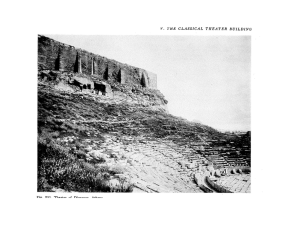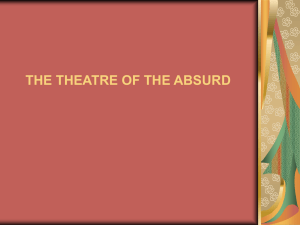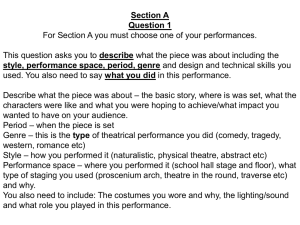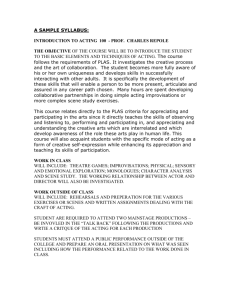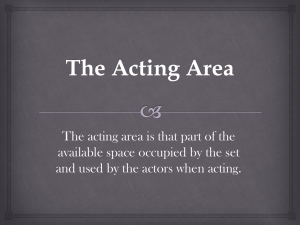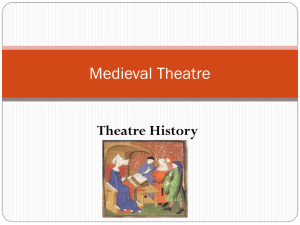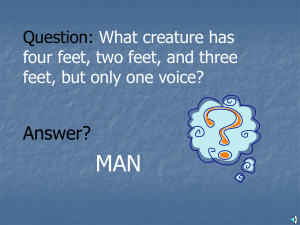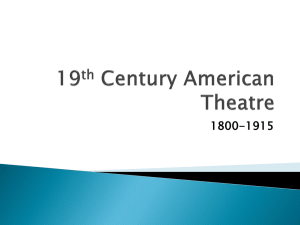Chapter Two - theatrestudent
advertisement
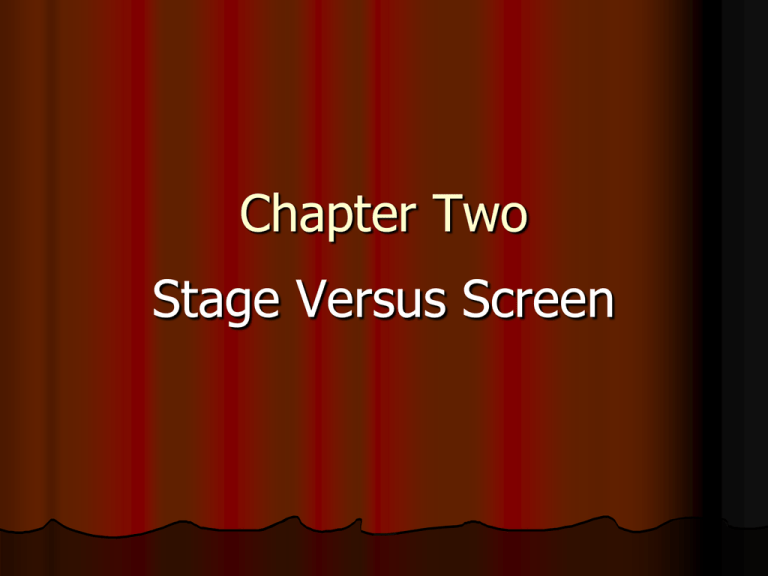
Chapter Two Stage Versus Screen Audience: No Cell Phones, Please! Theatre are active participants Communication flows both ways a pure form of acting because it belongs to the actors and audience Ethan Miller/Getty Images Audiences Audience: No Cell Phones, Please! Film and TV Peter Cade/Stone/Getty Images Audiences are passive Communication flows in only one direction Usually know in advance what you are getting for your time and money Acting: I’m Ready for My Close-up Acting in Film Photofest Photographic charisma is important Often shot out of sequence Memorization is not as important Allowed to fail Acting: I’m Ready for My Close-up “We’re tightrope walkers. When you walk the wire in a movie, the wire is painted on the floor, but when you walk it on the stage, it’s a hundred feet high without a net.” Al Pacino, Actor “…acting for film is like a musician playing in a recording studio and acting in the theatre is like playing live in concert…” Willem Dafoe, Actor Acting: I’m Ready for My Close-up Acting on the Stage and training are essential Everything is a wide-shot Memorization skills are required Must perform well with each performance T. Charles Erickson/Courtesy Berkeley Repertory Theatre Talent Directing: Direct and Indirect Theatre is a playwright’s medium Director understands that when the performance begins, the actors are in charge The director tends to work collaboratively © Joan Marcus It Directing: Direct and Indirect Film Photofest It is a director’s medium Exerts absolute control over every shot The director tends to be solitary authority Funding: Follow the Money Funding for the Screen Comes from Ticket sales DVD rentals Advertising Everett Collection Funding for Theatre comes from Ticket and concession sales Federal, state and local government grants Corporate funding and private donations William Missouri Downs Funding: Follow the Money Control: Who Pulls the Strings? Screen entertainment tends to put the values of the audience foremost Theatre tends to value the voice of the artist Bourgeois theatre and independent filmmaking will often combine both considerations The Theatre Next Door Who controls content? • Screen entertainment policies are dominated by a small handful of executives. • Hundreds of differing political view are promoted by thousands of theatres across the US. National Archives • Ownership: Copyrights and Cash Copyright – a legal guarantee granted by the government to creative artists that allows them to maintain control and profit from their work Royalty payment – fee paid to playwrights for the rights to produce their play Public domain – once a playwright has been dead for 70 years, his or her plays become pubic property Writers for hire – writers in screen entertainment who forfeit their rights to the works they author for a film or television program Curtain Call Screen entertainment tends to view their audiences as consumers and what they do as a product Theatre tends to view their audiences as equal participants in the theatre experience and what they do as artistic production



